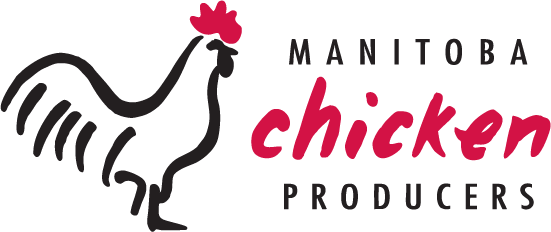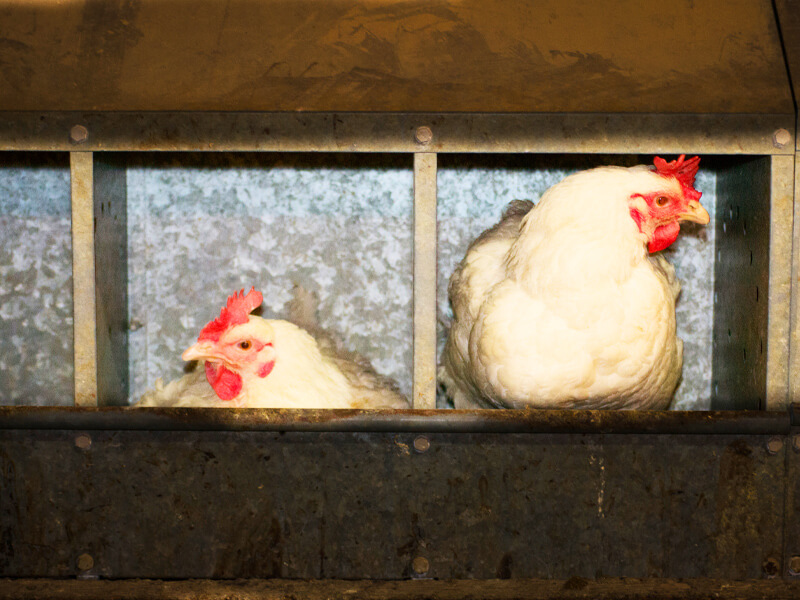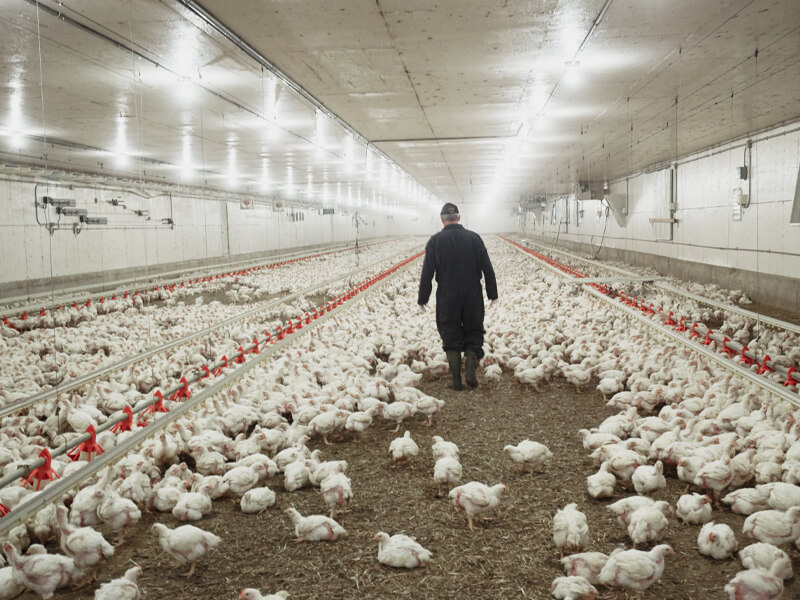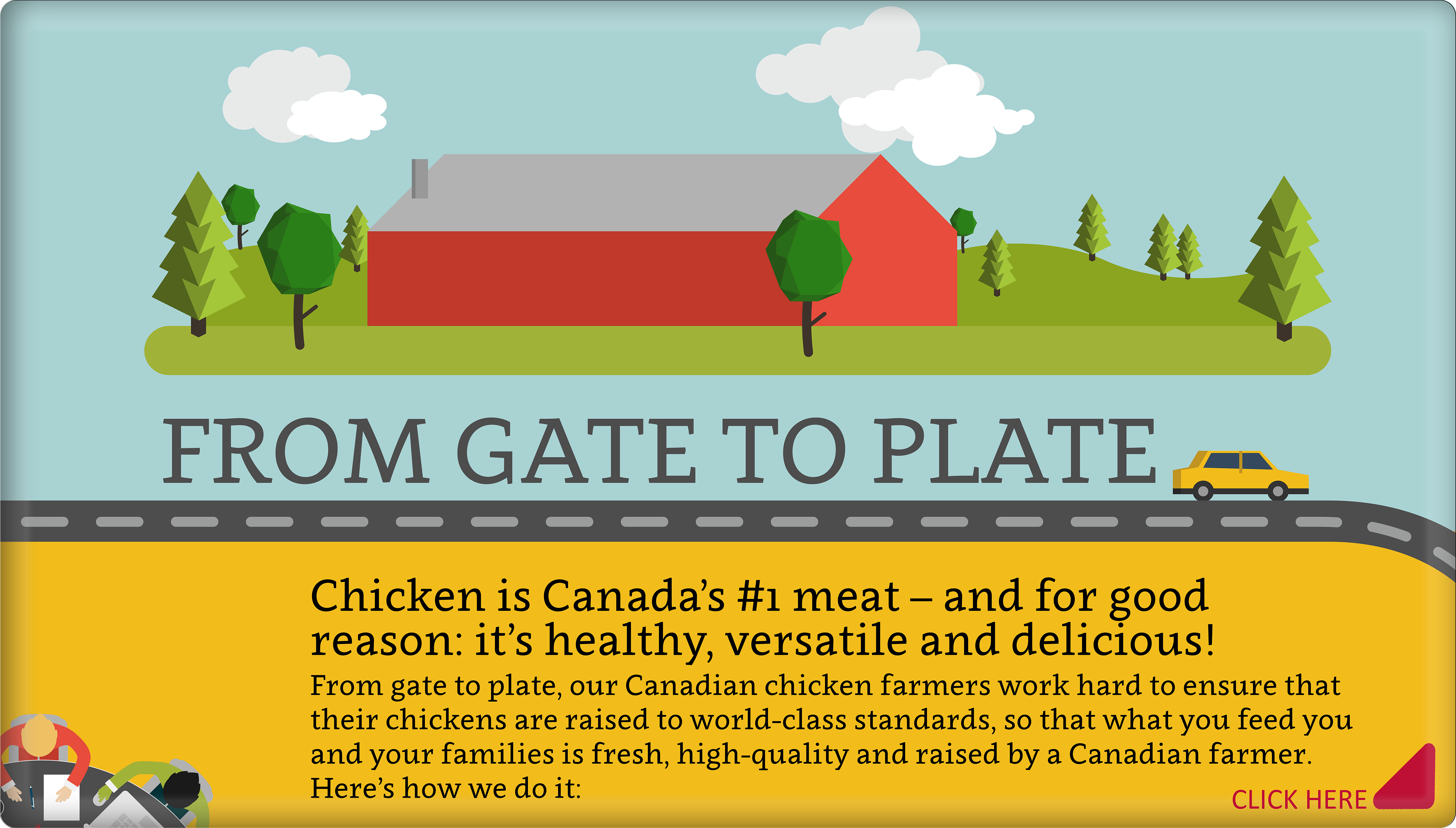
At The Broiler Breeder Farm
Broiler breeders are hens and roosters that live together on a broiler breeder farm, also known as a hatching egg farm. Broiler breeders are housed in climate-controlled barns and are free-run, meaning the hens and roosters roam freely throughout the barn and the hens lay their eggs in nest boxes. Hens are about 24 weeks old when they start laying eggs, and they will produce eggs for about 36 weeks. Each hen will lay approximately 150 eggs during that time. Because roosters live with the hens, the eggs are fertilized; unlike eggs we buy from the store, these eggs have chicks inside.
At The Broiler Farm
Meat chickens are raised in specially designed barns, which are heated and ventilated to maintain comfortable temperature, humidity, and air quality. Farmers continually monitor feed systems, waterlines, heating, ventilation, humidity, and other barn components to ensure the chickens are comfortable.
Raising chickens indoors prevents illness, keeps them safe from predators, and keeps them comfortable regardless of the outside temperature.
Meat chickens are free-run, meaning they are not kept in cages. They roam freely throughout the barn on a floor covered by straw or shavings. Fresh, clean water and nutritious feed are always available. If antibiotics are used, strict rules are followed.
The use of hormones in Canadian chicken was banned in the 1960s. Chickens are never given any hormones or steroids. Progress in raising chickens is the result of improved genetics, nutrition, and farm management.
From Farm To Processor
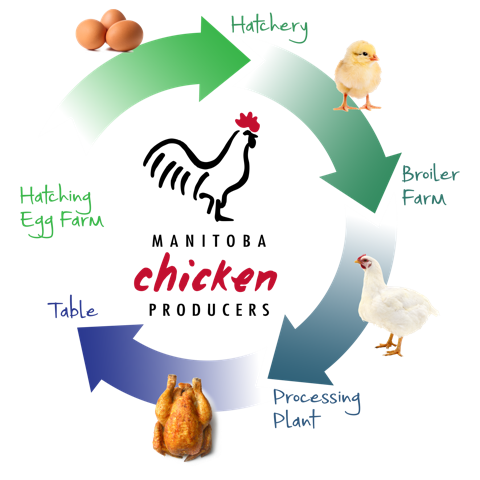
Manitoba chickens are shipped when they weigh approximately 2 kg (4.5 lbs). After the chickens are sent to the processing plant, the barn and equipment are thoroughly cleaned. Barns are typically left empty for a week or more before a new flock arrives, which helps keep chickens healthy.
The chickens are transported to processing companies in trucks designed for carrying poultry. At the processing plant, chickens are checked by an inspector. Manitoba has two federal processing plants (Exceldor Cooperative and Dunn-Rite Food Products) and three provincial plants (Waldner’s Meats, Favour-Rite Meats, Westman Processors).
Take a Virtual Visit To A Manitoba Farm
Tour a Manitoba broiler chicken farm and see how the birds are cared for.In this video one of our Manitoba farmers
answers your top 10 chicken farming questions.
Busting Chicken Farming Myths
Are chickens raised in cages?
Are chickens fed hormones and steroids so that they grow quickly?
Are chickens factory-farmed?
There are no factory farms in Canada. 97% of farms in Manitoba are family-owned and operated.
Does chicken meat contain antibiotics?
Are chickens force-fed?
Why are chickens raised in barns?
Resources
For more information on the chicken industry, visit:
